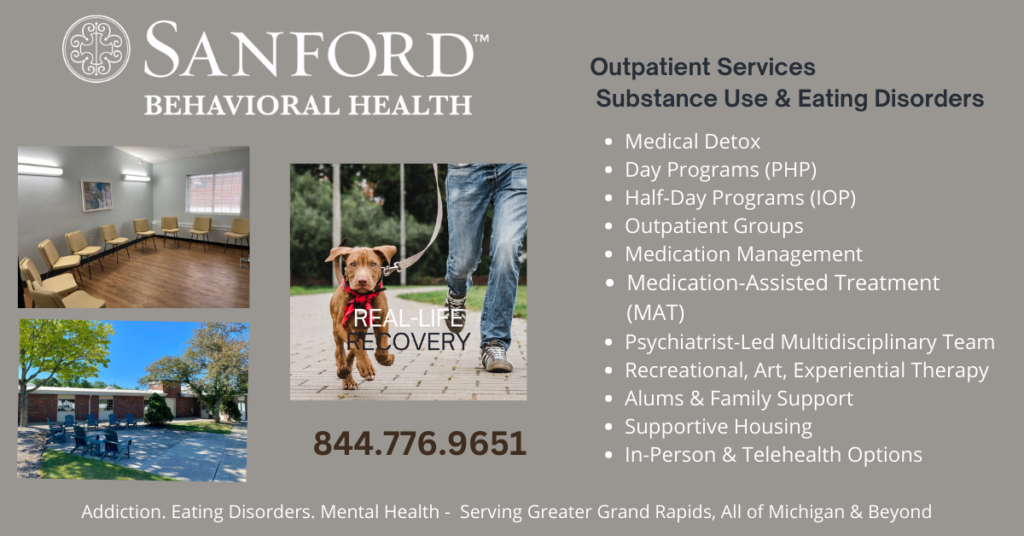Power of Pets in Virtual Addiction Treatment

Pets help foster empathy.
Updated March 2024
Floofer. Doggo. Pupper. Good Boy. These are some of the most cringe-worthy but intensely heartfelt phrases I find flying out of my mouth whenever I see a dog. It can get very embarrassing for those around me whenever I fail to regulate my reaction to pets. All of a sudden, my entire lexicon changes, and my voice morphs as well. Something deep inside is springboarded to the front of my brain – I must touch and love small furry animals. I would wager all people, at some point in time, have had a similar reaction, maybe not to dogs, but perhaps a cat, a bunny, or any other kind of pet.
When Pets Join Virtual Treatment
Now, vulnerably, writing about my inability to act like a respectable adult around animals does serve a purpose; as we have virtual programs at the Sanford Outpatient Center, I have had the unique privilege of seeing inside my clients’ lives and living environments. As we chat onscreen, we can all glimpse pieces of one another’s world at home. Notably, I have gotten to see the pets my clients spend their days with, and it has brought the most unexpected joy.
In a recent Intensive Outpatient group, I asked a question about the people, places, and things they are avoiding at this stage of recovery in order to protect their sobriety. One of my client’s cats was purring and meowing and placing itself right in front of the camera – begging for attention. We assume he was communicating about avoiding the neighborhood bully being triggering for him, maybe a dog? I had another clinician tell me that in her group, everyone put their dogs briefly on camera to say “hi.” Another client shared that the best part of her day is when her dog “commands” her to greet him for the first ten minutes she is home from work. The list goes on.

The Power of Pets
For a long time, those of us in healthcare have known that animals are a powerful tool for eliminating boredom, avoiding isolation, and encouraging a better mood. Those with mental health concerns are found to have lessened anxiety and are less likely to isolate if they have a pet. There are also reports that pet owners are more likely to have higher oxytocin levels in the brain. Pets help us foster empathy and can encourage social connectedness. If you have a pet that needs regular exercise, they can encourage healthier habits such as walking multiple times a week.
What are the implications for group therapy if animals are involved?
I can think of a couple of items. First, they bring feelings of comfort and safety. Undeniably, a pet’s presence is soothing to the owner. Even strangers are impacted by animals. They use dogs in courtrooms now to assist children in giving testimony. Therapy dogs are used in behavioral health facilities to give patients a smile and something to focus on. At Sanford, clients might find it a little easier to share difficult topics. Animals don’t judge; they unconditionally love. The owner feels this.
Pets can provide a needed distraction besides the feelings of safety and comfort. When a client is in group therapy, a topic may be triggering or painful for them to hear. Most of the time, this is accidental or unavoidable. In the instance of telehealth, the group isn’t physically there to provide face-to-face stimulation, which would usually assist in mitigating the trigger. Having a pet with the client gives them something to focus on besides themselves and the things that their brain is saying to them.
Pride of Pets in Recovery
When I told a group of our Intensive Outpatient clients that I was writing an article about dogs and telehealth. I received big smiles and affirmations. One client left the screen abruptly. And came back moments later carrying a dog. Everyone oohed and awed over this person’s dog. His name, his age, what he does all day. Instant celebrity.
After the pandemic, we have been in a period of uncertainty and confusion at all levels of life – our families, our communities, our country. At Sanford Outpatient Center, my goal is to keep things as manageable as possible for our clients. To enter into a life of recovery can be daunting enough. Those with pets are encouraged to cuddle their pets when they feel anxious. Walk their dogs when they think antsy or angry. Play with their animals until they are able to find a new perspective or figure out how they want to react to something.
If you or a loved one is struggling with addiction, eating disorders, or co-occurring mental health conditions, don’t wait to change your life – click the link below to speak with an admissions specialist.



